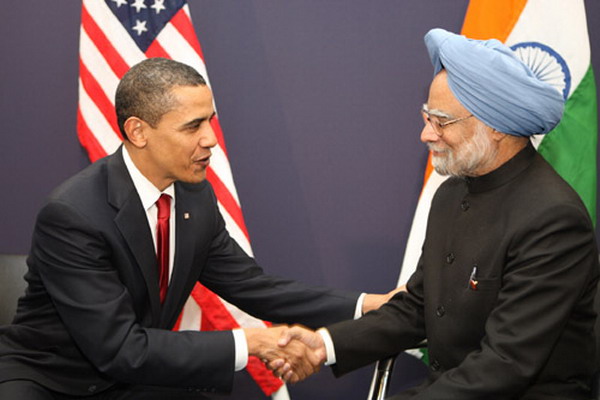A recent piece in the Wall Street Journal argues that from the US point of view, improved Indo-Pak relations are the key to progress in Afghanistan. The Obama administration had therefore issued a secret directive to work towards easing tensions between the two hostile neighbors. That would, in effect, help the administration secure Pakistani cooperation in Afghanistan. While the Obama administration may have its reasons, I think it is a fallacious argument to make. Pakistan’s 62 years of existence have revolved around enmity towards India. Pakistan will not divert its attention and resources away from India unless it gets Kashmir and everything else that it believes to be its right. And there is nothing to suggest that such a situation will arise anytime soon. Furthermore, Pakistan does not empathise enough with US interests and principles to give it conclusive support in the war against terror. Its interests and loyalties are better aligned with the Afghan tribes and Taliban.
 The WSJ goes on to report, “The directive concluded that India must make resolving its tensions with Pakistan a priority for progress to be made on U.S. goals in the region, according to people familiar with its contents.” While there is nothing new about this approach, I have a problem with the tone of the directive as conveyed by the WSJ piece. India is a sovereign country and the US cannot dictate how it handles its foreign policy. It does not need to be told by the US what its “priority” should be. Indian foreign policy priorities are to be determined by Indian national interest, and not US national interests.
The WSJ goes on to report, “The directive concluded that India must make resolving its tensions with Pakistan a priority for progress to be made on U.S. goals in the region, according to people familiar with its contents.” While there is nothing new about this approach, I have a problem with the tone of the directive as conveyed by the WSJ piece. India is a sovereign country and the US cannot dictate how it handles its foreign policy. It does not need to be told by the US what its “priority” should be. Indian foreign policy priorities are to be determined by Indian national interest, and not US national interests.
At a time when the US is desperate to resolve the mess it created in Afghanistan and for Pakistani help in doing so, the Indian government should stand firm on its principles and priorities. The US may have its concerns, but India should not let those superseed Indian interests. It should take a strong stand and not let the US pressurise it into talking to Pakistan. It should reiterate that Kashmir, the core issue in Indo-Pak relations, is a bilateral issue. India has refused any external interference so far, and there is no reason why any US involvement now would be beneficial or welcome. India did not take well to Obama’s suggestion that China help the two countries ease their tensions. It would be ignorant to assume that India would let the US interfere now. India should make it clear the it will not resume the Composite Dialogue unless Pakistan tackles terrorism and punishes the perpetrators of 26/11. The WSJ piece also suggests that some in Pentagon would like India to either reduce or pull back its troops along the border with Pakistan. That would be an outrageous expectation to make. India should also stand firm on its humanitarian investment in Afghanistan, and not walk out of there just because the US and Pakistan want it to. I have argued before for the need to stay the course in Afghanistan and believe that India has enough reason and motivation to continue.
Pakistan knows the art of exploiting and blackmailing the US into fulfilling its demands. And constant US appeasement has made it even more arrogant of the power it wields in the geo-strategic calculations of the region. But just because one is desperate and the other arrogant, does not mean that India should be a fool. India’s foreign policy attitude is rather non-aggressive and non-assertive, and it needs to discard such unnecessary meekness. It needs to demand what it wants, and not whine because the world does not give it enough attention. Indian leaders expect the world to someday recognize their good record, peaceful intentions and economic growth, and hand them their dues. They need to understand that it will not happen. They have to fight for India’s rightful place in the global order. And that includes adopting an assertive attitude. Unless that happens, other countries will continue to expect India to alter its priorities to suit their interests.